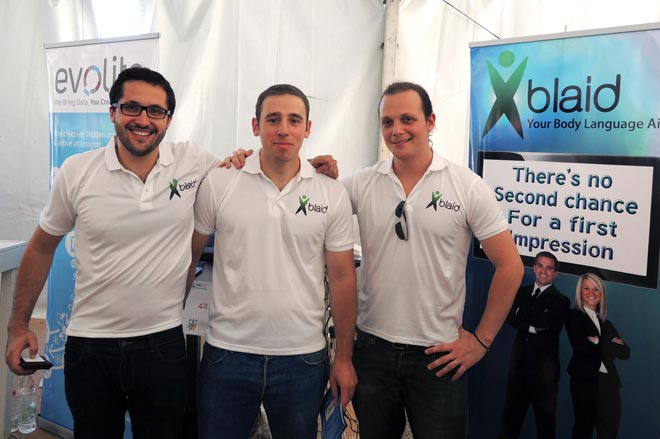Startup innovation knows no bounds
Living here in Startup Nation, and having worked with and been around startups for much of my life, you’d think I’d grow used to these little powerhouses of innovation. And yet they always manage to surprise me, with an endless stream of innovative ideas and applications.

Perhaps my favorite kind of startup is one that takes existing technology and applies it to make something completely different. Recently I went to the Innovation Day fair of StarTau, Tel Aviv University’s entrepreneurship center, where they teach students to become Entrepreneurs (and Intrapreneurs – I actually lecture there about this subject). And in there, among scores of wonderful startups (I may tell you of some more of them another time), I ran into Blaid, which stands for Body Language Aid.
How to get presentation coaching without a coach
Blaid’s goal is to help you improve your presentation skills by coaching you to use proper body language as you lecture or present (they seem to think more about presentation of a business pitch, although to my mind this would apply just as well to public speaking and classroom teaching).
As the three team members in the photo below were happy to explain to me (with excellent presentation skills, naturally) their brainchild will do this the way a human coach would, by first letting you tell it what effect you need to achieve, and then looking at you present and giving you constructive criticism about your stance, movement and timing.
But all automatically. No human involved.

How does this work, you ask? Well, there are three parts to this neat innovation. First, you tell the system what sentiments and impact you wish to evoke with each slide of your presentation. Then, the Blaid system uses the Kinect, that cool outcome of another Israeli startup’s technology, to look at you as you practice your presentation; finally, it uses sophisticated algorithms to figure out whether your body language is right, and if not, how it should be improved. You get this feedback in a printed report detailing the conclusions for each slide (see an example here), and you can use an earpiece to actually get feedback in real time.
Some thoughts about this innovation
Blaid’s system is still in its early stages, but they have a working prototype and are forging ahead to make it into a product. Meanwhile, it’s fascinating to consider the implications.
The technology part is impressive: where it used to take your mother, or (later) your drill sergeant, to tell you to stand straight and pull your stomach in and so on, now the Kinect system perceives your spatial presence with a single low cost sensor – a feat that mere years ago would require very expensive rocket science. But the algorithmic part is even more intriguing – can the essence of good presentation skills be captured in a cold, soulless machine? Alan Turing would have said temperature has nothing to do with it, of course, and computers these days are getting ever more soulful…
And perhaps most interesting to me – how will people integrate into the setup? Will they find this coaching effective for them? Would you submit your expressive power, a key part of you, to a computer’s criticism?
I’m can’t wait to see a characterization study of how this innovative product pans out!

